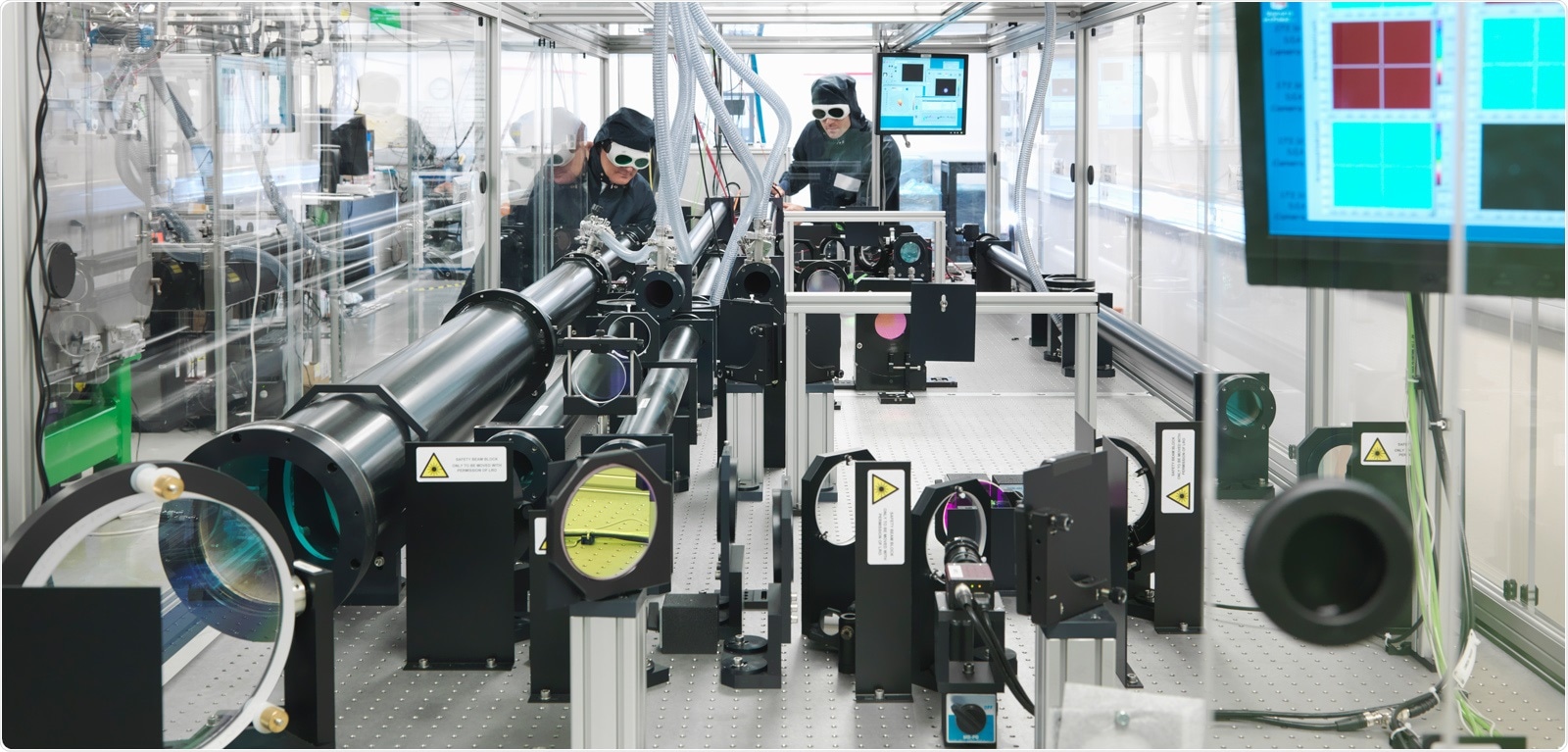Researchers at Queen’s University Belfast have discovered a new tool, which will help to investigate more effective forms of cancer treatment.

Image Credit: Central Laser Facility, STFC
Using high-power lasers, the experts have been able to generate a ‘pure beam’ of carbon ion with unique properties.
This bright, ultrashort particle source can be used to investigate how biological samples respond to radiation under extreme conditions. They say this could pave the way for advanced and more effective radiotherapy approaches.
Professor Marco Borghesi from the School of Mathematics and Physics at Queen’s, led the project and worked closely with experts from the University of Strathclyde, Imperial College London, and the Science and Technology Facilities Council’s (STFC) Central Laser Facility (CLF). The project was funded by the Engineering and Physical Research Council (EPSRC) – both EPSRC and STFC are part of UK Research and Innovation.
Professor Borghesi explains: “Currently radiotherapy is used to treat many forms of cancer, and while this is usually done using x-rays, more advanced and more costly forms of treatment use particle beams. Carbon ions, in particular, are very effective in treating types of tumors which are resistant to other forms of radiation.
“A current, promising development in radiotherapy is the ‘FLASH’ approach where radiation is delivered in short, intense bursts. This leads to reduced side effects and potentially more effective treatment.
“There is therefore great interest in investigating the response of human cells - healthy and cancerous - after exposure to ultrafast ion irradiation. Through our research we have produced an ultrashort carbon beam that can deposit its energy in nanosecond bursts, or less. This is very innovative and important in advancing the science behind cancer treatment. We have now started cell irradiation experiments using this beam, in collaboration with our colleagues in the Patrick G. Johnston Centre for Cancer Research at Queen’s.”
Dr Aodhan McIlvenny, a Queen’s University researcher and lead author of the study, explains: “When we shine a short burst of light – a laser - on a very thin object, we can push it forward at very high speeds. Typically, the energy transferred by the laser is carried away by particles we don't want, and we aren’t able to use it.
“However, we have now discovered that by heating the object extremely quickly, we can remove these unwanted particles before hitting the object with the intense laser pulse.
“This means that we are then able to produce almost pure beams of the particle type we are interested in – in this instance it is carbon ions. This gives us the ability to select a specific type of radiation and use it for targeted irradiation experiments in new areas that we have not yet explored.”
Professor Kevin Prise from the Patrick G. Johnston Centre for Cancer Research at Queen’s said: “This a major step forward in our ability to test new beams for future radiotherapy applications and it allows us to now explore potential new biology, which will help to explore ways to advance cancer treatment.”
This innovative new approach demonstrates the impact cutting-edge physical sciences research can have in improving healthcare technologies, such as more effective radiotherapy treatments for cancer. The inventive, discovery-led work of the UK’s researchers, supported by EPSRC, will play a key role in pushing forward the frontiers of knowledge and addressing challenges across healthcare to deliver a better quality of life.”
Jane Nicholson, EPSRC Director, Research Base
Source:
Journal reference:
McIlvenny, A., et al. (2021) Selective Ion Acceleration by Intense Radiation Pressure. Phsyical Review Letters. doi.org/10.1103/PhysRevLett.127.194801.